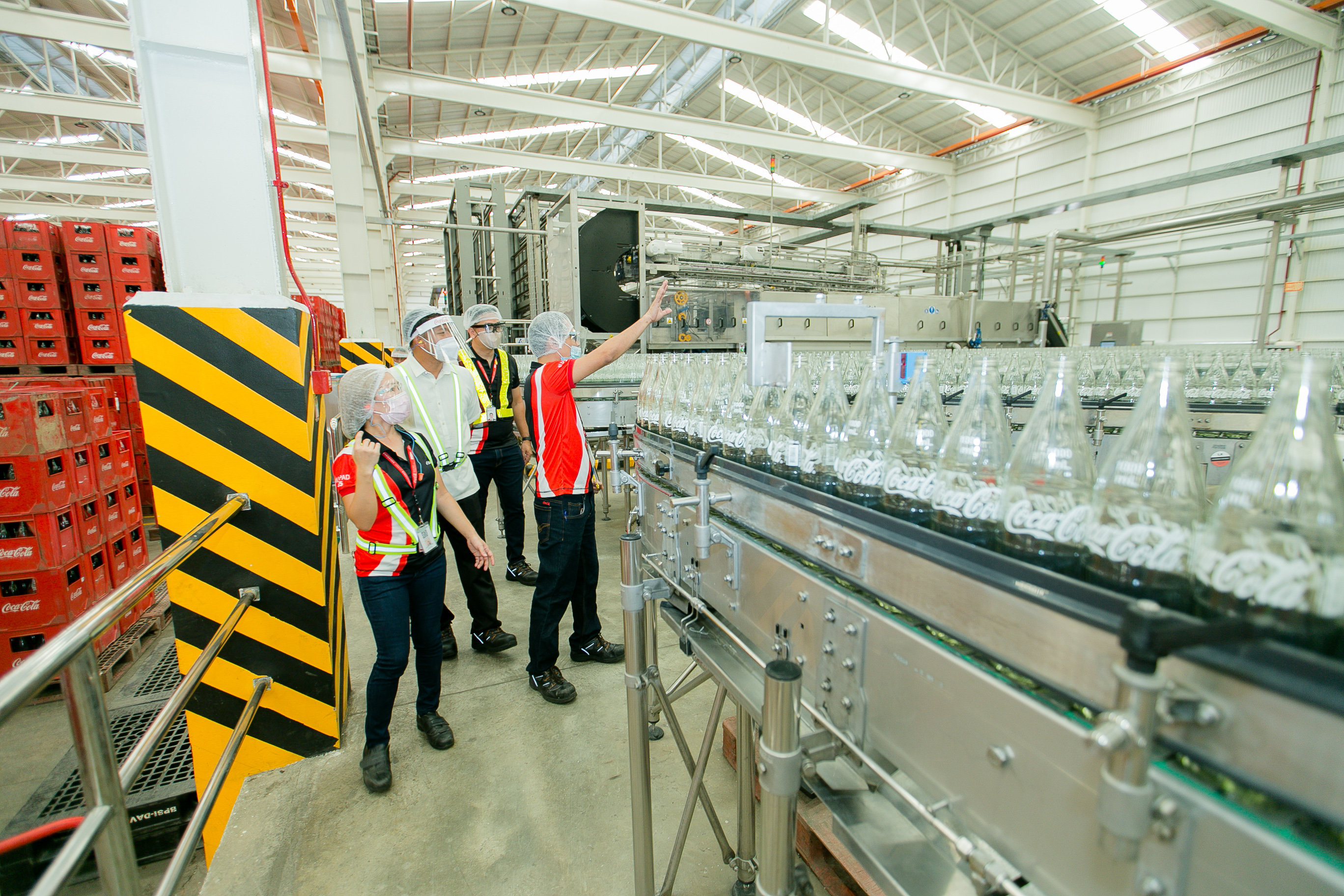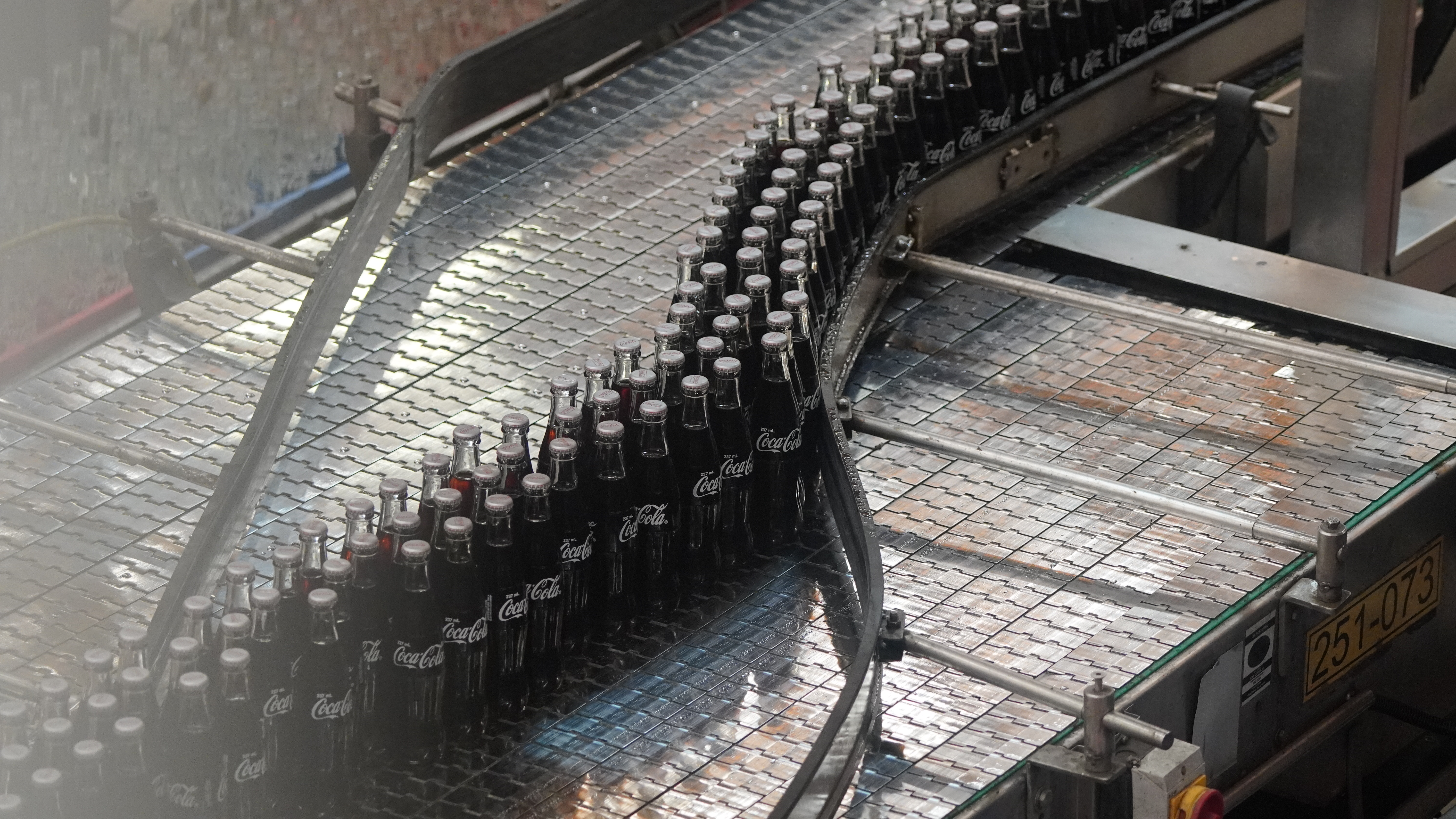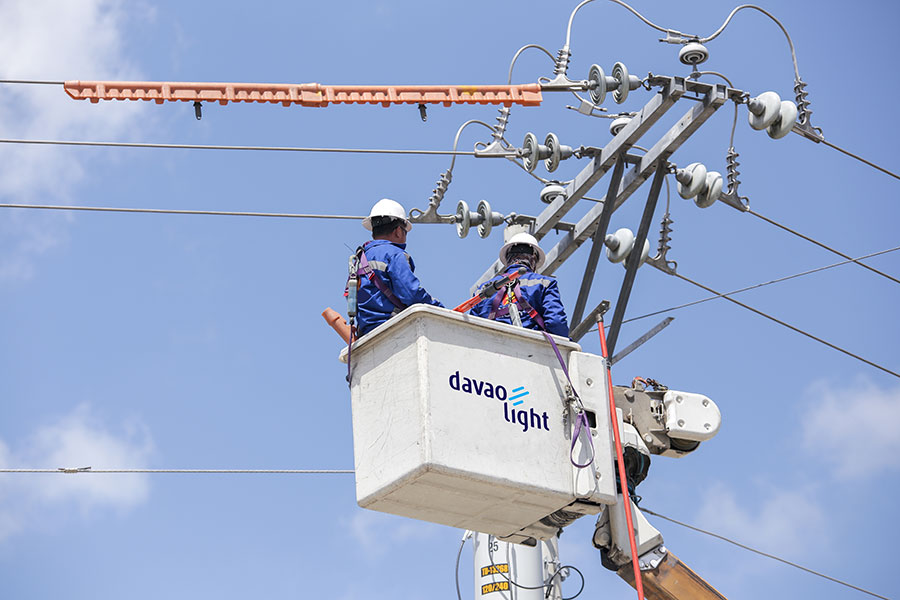Three of Coca-Cola’s production facilities in Mindanao switched to the Retail Competition and Open Access (RCOA) program, which allows the company to choose its electricity supplier and, subsequently, the power source for its operations.
As a total beverage company, the reliability of energy supply is critical to Coca-Cola Europacific Aboitiz Philippines’ (CCEAP) operations. With its mission to refresh the Philippines and make a difference, CCEAP efficiently powers its manufacturing plants while ensuring that its iconic beverages are accessible and available to all.
Partaking in energy consumer empowerment in Mindanao, CCEAP has joined the roster of retail market participants in the region with the transition of three of their production plants to the Retail Competition and Open Access (RCOA) scheme. This allows them to take advantage of the benefits of electricity products and services provided by their preferred energy supplier.
RCOA is a mechanism of the Electric Power Industry Reform Act or EPIRA that allows qualified electricity end-users like CCEAP to freely choose and directly transact with a power supplier.
These CCEAP manufacturing sites — its plants in Misamis Oriental, Davao City, Davao Del Sur, and soon its plant in Zamboanga — are among the first to take advantage of RCOA in Mindanao, moving away from the captive market of a distribution utility and becoming more positioned to align their current and future energy needs. Since its adoption, RCOA has allowed CCEAP to effectively manage costs and address most of its energy demand with various energy sources.
“We at Coca-Cola take pride in our resolve to deliver on our sustainability commitments throughout our manufacturing sites and in the areas where we know we have significant impact,” said CCEAP Vice President for Supply Chain Frank Garcia. “CCEAP is an active participant in the country’s energy transition. As partners in championing renewable energy, we share in AboitizPower’s goal to build an environmentally sustainable future for all.”
CCEAP finds it beneficial to transition its production plants in Mindanao from distribution utilities to RCOA as part of its energy roadmap.
“Coca-Cola entered into agreements with Retail Electricity Suppliers (RES) to ensure a reliable supply of electricity. These suppliers provide competitive rates and flexible contract terms,” shared CCEAP Category Manager for Raw Materials Arline Janine Octavo.
“Additionally, RES offers advanced analytics and monitoring tools that enable companies to track their energy usage in real time,” she added. “This presents an opportunity for us to leverage these capabilities, helping us identify areas for improvement and optimize our operations effectively.”
The power of choice

CCEAP partnered with AdventEnergy to supply its energy needs as the mission of the AboitizPower RES unit aligned with the need for a reliable power supply and hands-on support.
Powering the three CCEAP facilities in Mindanao is their chosen RES: Adventenergy Inc. (AdventEnergy), wholly-owned by power company Aboitiz Power Corporation (AboitizPower). The RES unit caters to large commercial and industrial businesses in the country in terms of retail electricity supply.
As shared by CCEAP, AdventEnergy’s customer service is also highly regarded for being hands-on and supportive throughout the switching process, which has also been an important factor in their decision.
AboitizPower Vice President for Retail Energy Sales, Solutions and Services Gina David-Camacho explained that RCOA had just been established in Mindanao last March 2024, whereas its commercial launch in Luzon and Visayas was way back in 2013.
“We are proud to be among the first RES players to make an impact in Mindanao, particularly in helping meet the power requirements of an iconic brand in Coca-Cola through our customized and value-adding solutions,” she added.
Aside from Mindanao, AdventEnergy also energizes five CCEAP production plants in Luzon and Visayas. The company helps Coca-Cola sustain its portfolio of beloved brands spanning its different beverage categories; from water, to sparkling, to flavored sparkling, to ready-to-drink juice, to ready-to-drink tea, to dairy, and to alcoholic beverages.
![]()
AdventEnergy’s customized solutions help Coca-Cola run its manufacturing plants efficiently and sustain its iconic beverage brand.
AdventEnergy provides customized solutions to help businesses save costs and perform efficiently, offering a hybrid energy portfolio to ensure continuous power and smart metering to explore innovative ways in accessing and monitoring energy-related information. Its energy solutions also include energy audits and power management systems to help businesses gain operational efficiencies, compliance with regulations, and ultimately be positioned for growth.
Under AboitizPower’s retail unit, AdventEnergy is currently the largest energy retailer group in the country, providing services to more than 500 facilities nationwide and helping them optimize and progress.
“We support the RCOA scheme. We want to help enable businesses nationwide to exercise their freedom in selecting the energy provider that best aligns with their business requirements,” said AboitizPower’s David-Camacho. “Through our service of offering tailored solutions designed around the customer’s power needs, we help produce and sustain growth and development in different segments in the country.”
RCOA began commercial operations in 2013, giving the option to large electricity end-users referred to as Contestable Customers to avail of a more tailored power supply and competitive pricing.
According to the Energy Regulatory Commission or ERC, those who transitioned to the competitive retail electricity market collectively saved an estimated P18.57 billion in 2024 alone. The Commission seeks to further lower the eligibility threshold for those wanting to take advantage of RCOA, from a current monthly average peak demand of 500 kilowatts to 100 by 2027, making it accessible to households.
CCEAP aims to further develop customized energy solutions with AdventEnergy, specifically tailored to the needs of each plant. This includes recommendations on how it can optimize electricity usage efficiently.
“Renewable energy is a long-term plan for CCEAP as it is part of our sustainability goals and growth strategy. Our clean energy roadmap includes transitioning to 100% renewable energy, enhanced energy efficiency, and strategic partnerships to deliver on our sustainability commitments,” remarked Garcia of CCEAP. “We believe that we are just getting started towards helping create a more robust energy infrastructure in the Philippines.”



